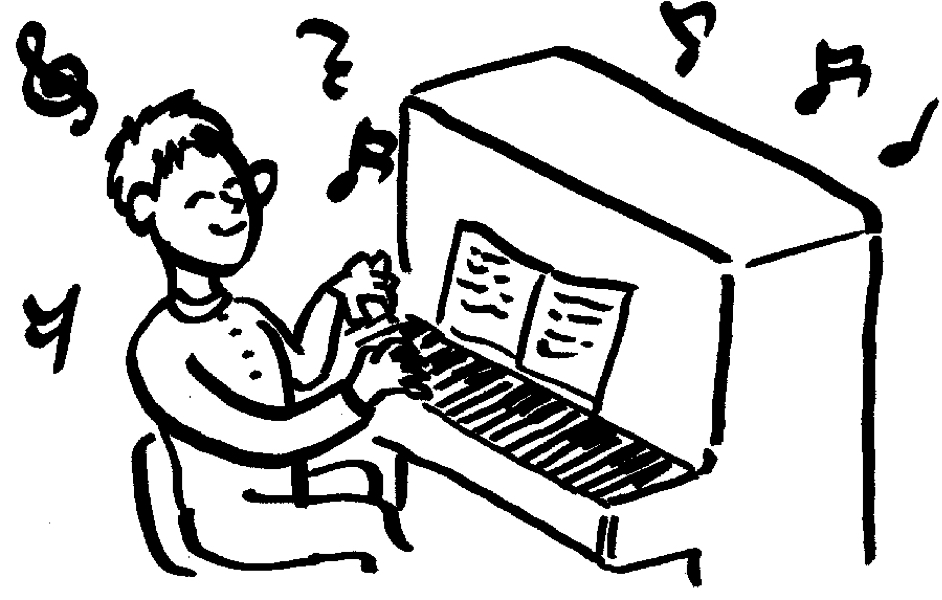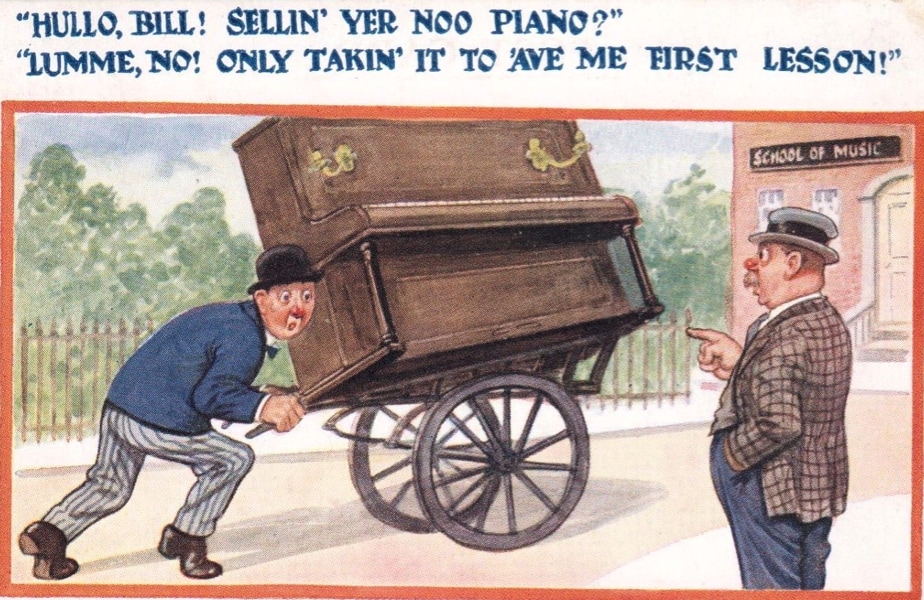
Is counting natural?
Is counting natural? My experience tells me not! Many young children have to be taught to hear the pulse of music, and most of us have had to learn to keep a steady pulse. One needs to practise, sometimes, with a metronome.

Is counting natural? My experience tells me not! Many young children have to be taught to hear the pulse of music, and most of us have had to learn to keep a steady pulse. One needs to practise, sometimes, with a metronome.

How does one choose a voice teacher? How do you know if it's someone who will develop your voice appropriately, but not harm it? It is hard to know what to look for or what to ask a prospective teacher.

There are too many scales in ABRSM piano exams: far more than for other instruments - and I have sat across the table from the chief examiner and told her so. Why are there just scales and arpeggios and not technical exercises, as for other instruments?

This page is a note about how I teach students how to practise. What areas they should include and what technique can help them improve pieces they are learning.

I have been delivering a crash course in ABRSM Grade 5 Music Theory this week, for some nice people in Stamford (UK). They called their course Music Theory Fast, and whilst I cavilled, of course, at the grammar, I liked the double meaning of "Fast": we did it quick, or rather quickly, and hopefully it will stick fast.

Here are the Top Ten Tips for adult beginners learning the piano, from an article that appeared in Pianist (the magazine) August-September 2003 by Jocelyn Abbott.

The best way to improve your sight-reading at the piano is to play a lot more music, and have a teacher guide you about what you are doing right, and what you are doing wrong. But there are lots of books on the market that can help.

What are benefits of scale practice, and what are the best ways to practise scales? The Aristocats knew: "Every truly cultured music student knows,
You must learn your scales and your arpeggios"

Sir, The wider benefits of music education are not limited to school age (letter, May 31). Some years ago I was delighted but surprised to discover that the music department of which I was head had the best record for employment within the university.

You are learning the pipe organ, and need one to practise on. Assuming you do not have access to a church with an appropriate instrument, you will need one at home.

Old editions have their uses. The old Novello edition of Chopin Nocturnes has a very helpful table of the fioriture (fast florid passages) in the Chopin Nocturnes, with an interpretation by Frank Merrick of how to play them.

This is a check list for sight-singing in ABRSM Singing Grades 1 to 5, and for general aural tests in Grades 6 to 8 (tests 6b, 7b and 8b).
We use cookies for the best online experience. By using this website you agree to the cookie policy.